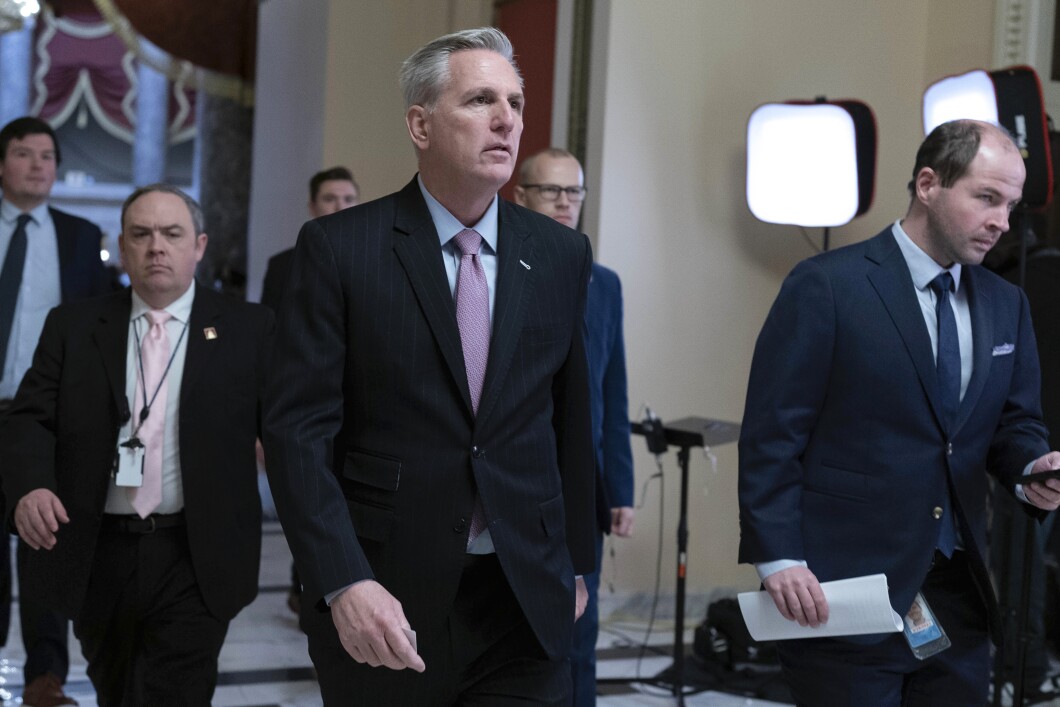
Republicans in the House are reportedly crafting a contingency plan in the event negotiations fail on lifting the debt limit, which is projected to be hit next week.
In the proposal currently in the works, Republicans will outline how they believe the Treasury should prioritize payments if the debt limit is maxed out. They will likely place a high emphasis on Social Security, Medicare, and the military, sources told the Washington Post.
US WILL HIT DEBT CEILING NEXT WEEK, YELLEN SAYS IN ANNOUNCING ‘EXTRAORDINARY MEASURES’
“The use of extraordinary measures enables the government to meet its obligations for only a limited amount of time. It is therefore critical that Congress act in a timely manner to increase or suspend the debt limit,” Treasury Secretary Janet Yellen warned Friday.

Those “extraordinary actions” would include the Treasury moving money around in government accounts to make payments without amassing additional debt. Currently, the limit is set at $31.4 trillion, and once the cap is reached, the U.S. government will no longer be permitted to borrow additional money despite having an annual budget with a roughly trillion-dollar projected deficit.
Economists fear that if the debt limit is not raised, the United States will careen toward a default, which would likely wreak financial havoc on the markets and hemorrhage jobs.
During a prior debt limit crisis in 2013, the Obama administration argued that prioritization of funding was not possible due to the byzantine nature of government payments.
More specific details of how Republicans want to prioritize spending in the event of a debt ceiling crisis were not provided immediately, as the plan remains subject to negotiations by the House GOP. Prior to his ascension, House Speaker Kevin McCarthy (R-CA) was forced to cut deals with roughly 20 Republican holdouts.
Details of all his concessions were not made public, but it is believed to feature a pledge to pair debt ceiling increases with spending cuts, something that will likely be a red line for the Biden administration. The debt ceiling marks a key test of his speakership as McCarthy presides over a slim GOP majority and stiff opposition from the Democratic-controlled Senate and Biden administration over conservative solutions to the debt ceiling impasse.
“What I can say is that we believe, when it comes to the debt limit, that it has been done in a bipartisan way over the years — decades. It should be done in a bipartisan way, and it should be done without conditions,” White House press secretary Karine Jean-Pierre told reporters, noting the limit was raised three times under the Trump administration.
CLICK HERE TO READ MORE FROM THE WASHINGTON EXAMINER
McCarthy told reporters he is keen on sitting down with President Joe Biden to negotiate a deal on the debt limit. Notably, the debt limit only applies to spending that has already been agreed upon. Congress passed an omnibus $1.7 trillion budget late last year laying out expenditures for fiscal 2023, much to the chagrin of McCarthy, who hoped to whittle out what he described as “wasteful spending.”
Historically, the U.S. has never defaulted on its debt despite a number of fiscal showdowns.






